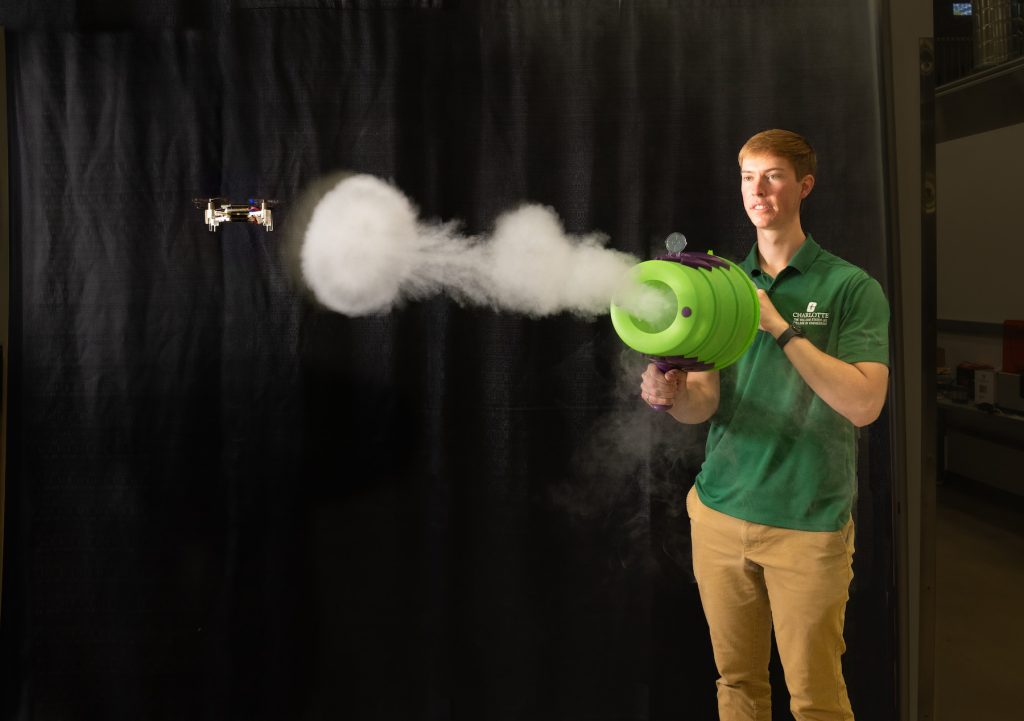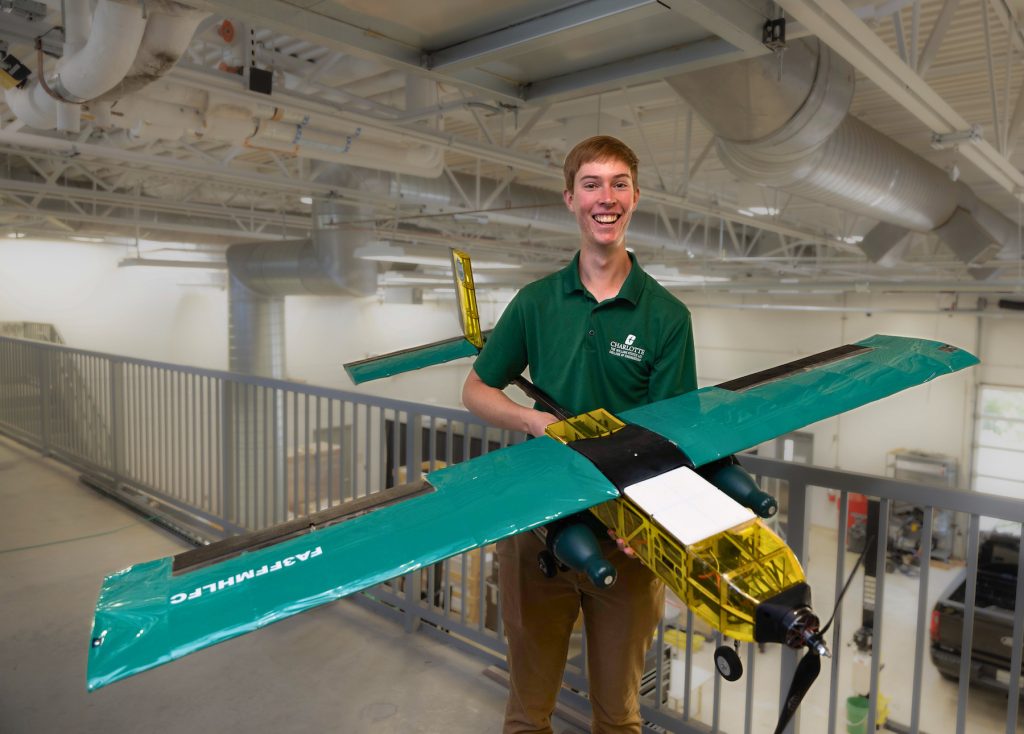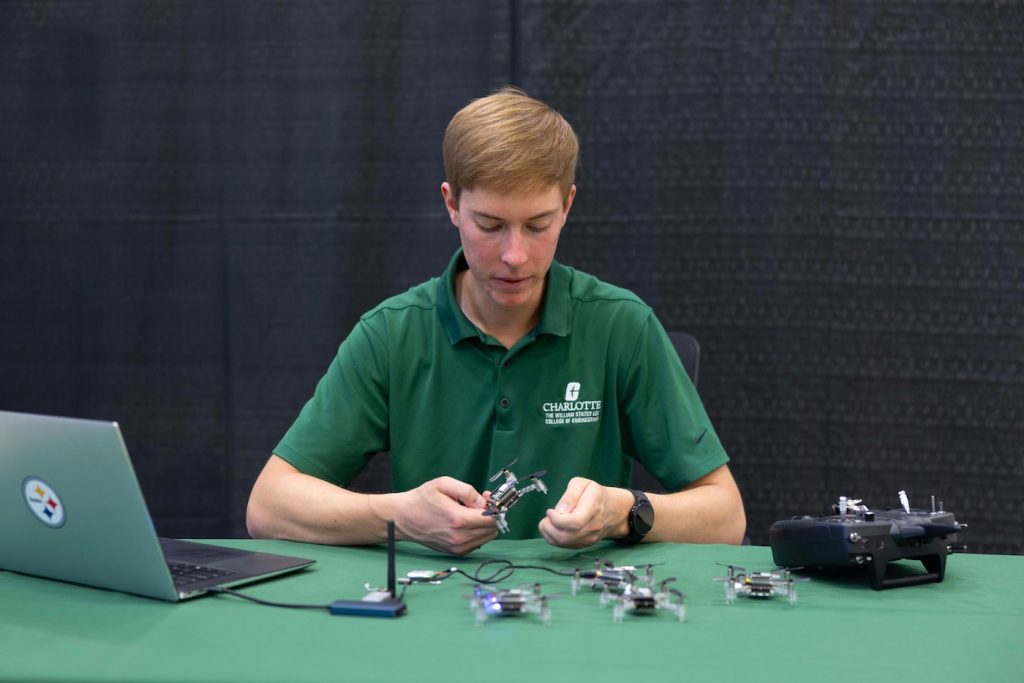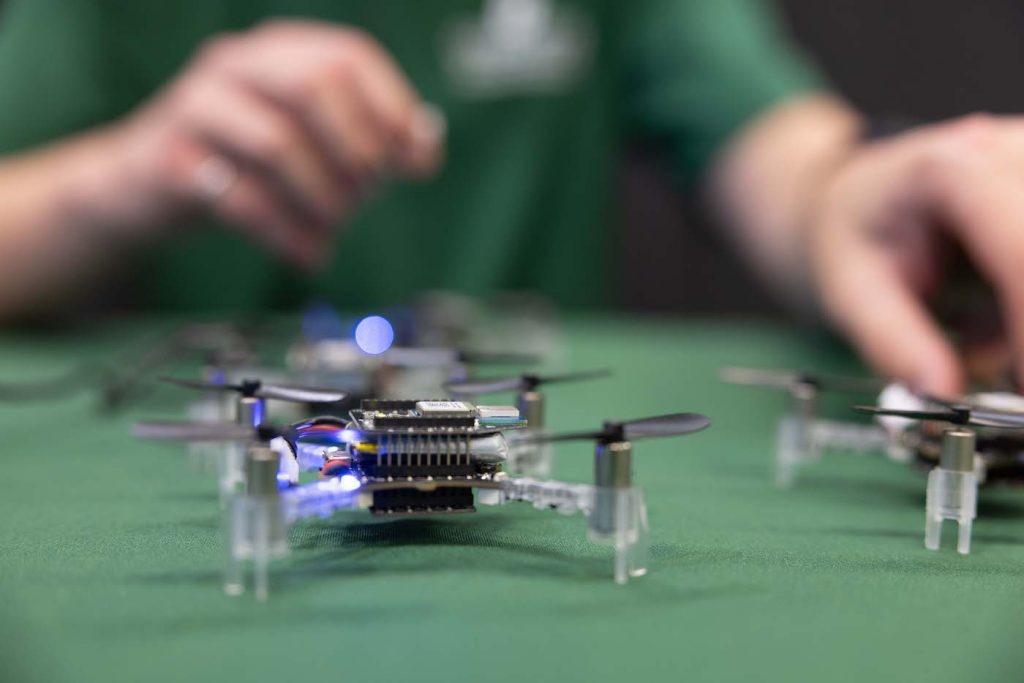Kyle VanHorn is ready for takeoff

Kyle VanHorn is fascinated by flight — particularly its associated speed, trajectory and control. So much so that he tailored his UNC Charlotte engineering education toward aeronautics.
“I’m helping improve autonomous vehicle technology so drones can fly more efficiently,” said VanHorn, an Albert Scholar and Honors College student who is graduating in May 2025 with a Bachelor of Science in Mechanical Engineering.
While an undergraduate, VanHorn developed and implemented new technology that can guide a group of digitally interconnected mini-drones, called a “swarm,” to better communicate and self-adapt their flight.
“I developed a machine learning model to help the swarm ‘talk’ to one another about wind so together, they can avoid potential hazards, such as being blown to the ground, which is particularly important when they fly in cities. I ended up contributing to a published paper on the research, which I presented at the Kennedy Space Center,” VanHorn said.
Early in his Charlotte educational journey, VanHorn focused on gaining hands-on engineering experience. As he progressed, he gravitated toward deepening his exploration of flight. Prior to his junior year, VanHorn approached the Office of Undergraduate Research, which linked him with Artur Wolek, an assistant professor of mechanical engineering who researches autonomous vehicles. By participating in OUR, VanHorn learned how to investigate ways to help multiple, autonomous drones coordinate their flight patterns.
“Through this research experience, I have gained countless technical skills as well as developed a passion for research.”
Kyle VanHorn
Meanwhile, the Niner Engineer tailored his coursework around his passion, taking classes in flight mechanics, aerospace propulsion, uncrewed aerial vehicles, applied vehicle aerodynamics and more. He was fueling up on foundations and actively positioning himself for more opportunities.
“It was immediately apparent that Kyle was highly motivated, mature and passionate about aerospace engineering,” said Wolek. “I was so impressed by his abilities that I subsequently offered him a paid undergraduate research job funded by my NSF grant.”
As a senior, VanHorn continued to feed his craving for flight with this new research role. Working under Wolek’s supervision in BATT CAVE, the University’s high-tech, autonomous vehicle lab, he focused his research on drone behavior.

Among the many interesting parts of the job was “blasting a hovering drone using an air vortex cannon to learn how the drone responds,” said VanHorn. “This helps us improve the resilience of smaller drones in sudden wind gusts.”
The Niner Engineer, ever in a quest to quench his aviation craving, founded the student organization airplane club, Design-Build-Fly, which has grown into an annual competitive team.
In spring 2025, VanHorn led the first Charlotte team to compete in an international competition in Tucson, Arizona, where the 49ers vied with other top aerial enthusiasts from around the world.
Charlotte enabled VanHorn to customize his collegiate experience and he virtually built his own launching pad to a bright future.
“As a Niner,” VanHorn shared, “I have gained countless technical skills, won the Stan Powell Award for Best Undergraduate Paper, developed a passion for research and decided to pursue a graduate degree in aeronautics.”

